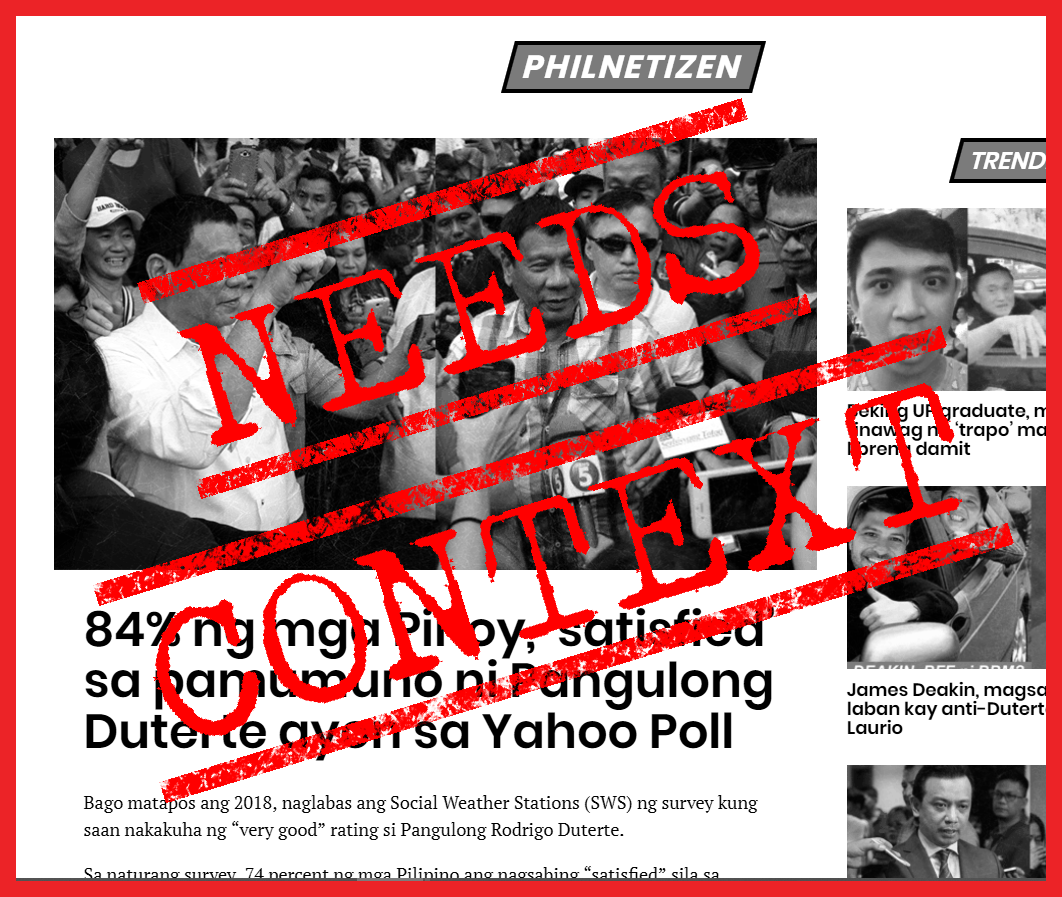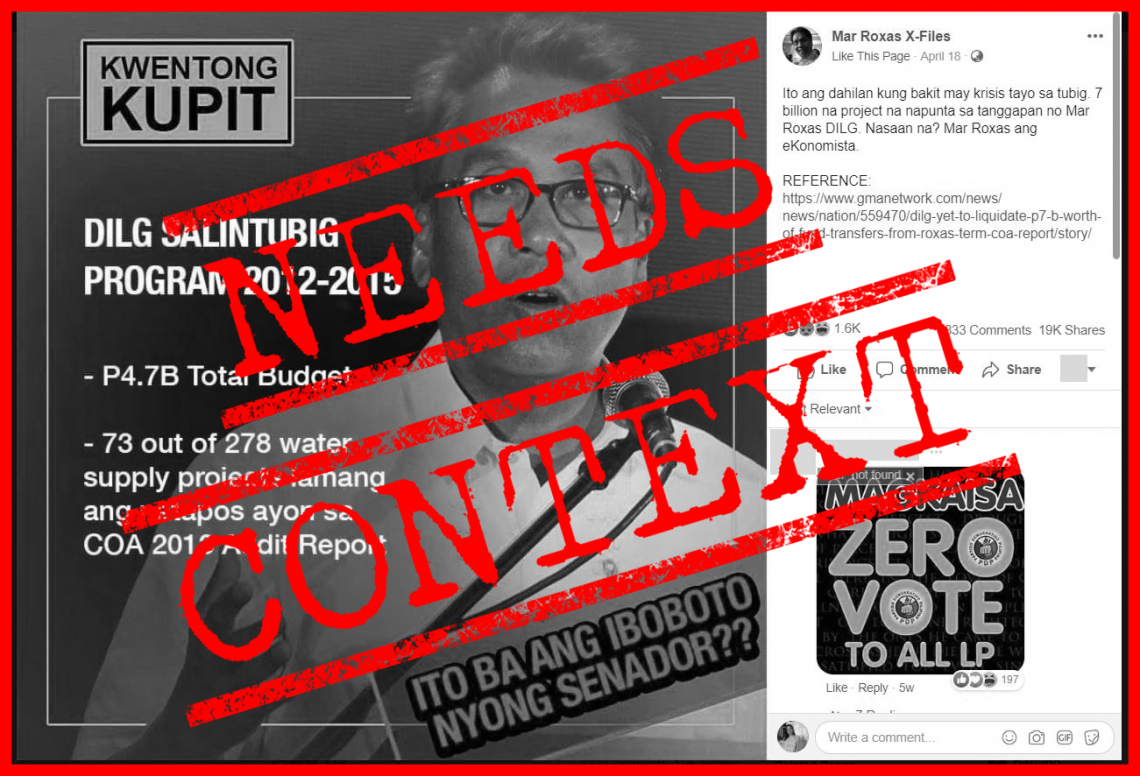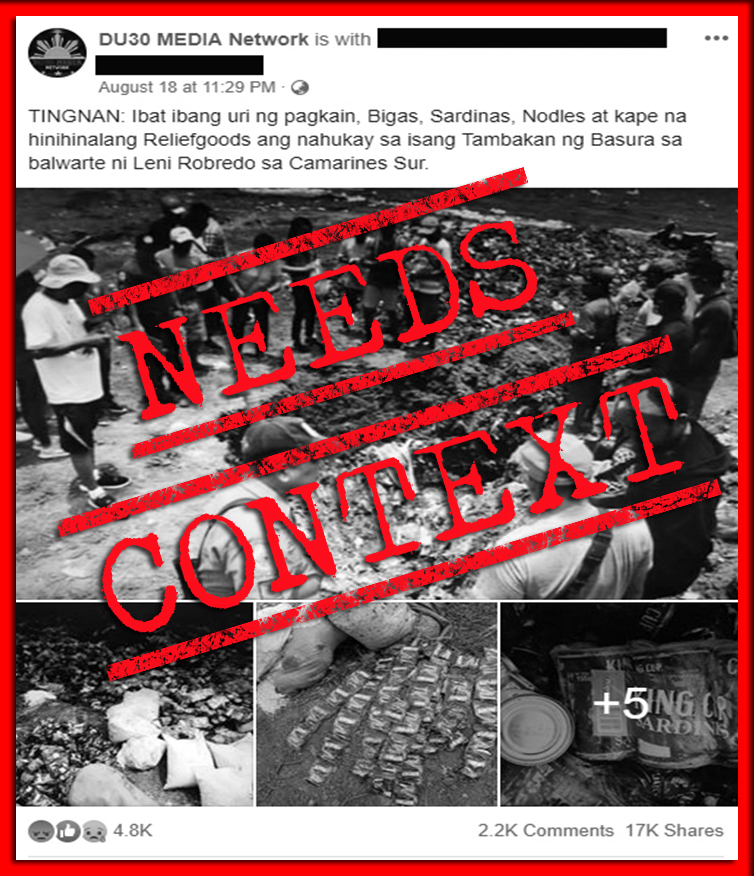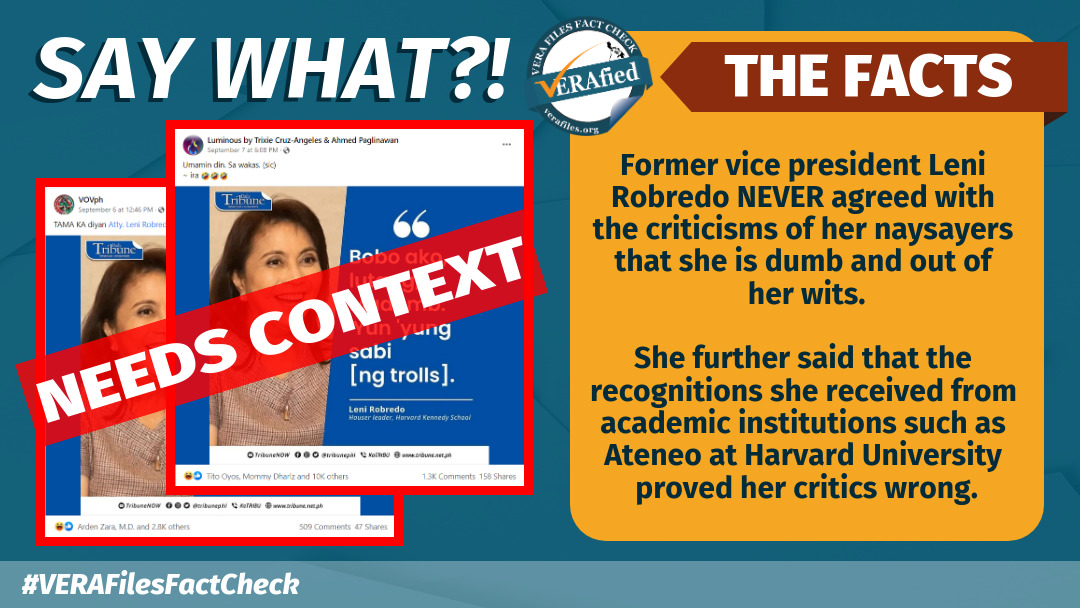A video of a person scraping what appears to be wax on the surface of an apple, leading viewers into thinking that eating apple skin is unsafe, needs further context.
The three-minute footage, which has already been viewed over five million times on Facebook (FB), was uploaded Oct. 10 by Paolo Duterte Supporters page with the caption:
“PANGANIB NA DALA NG MANSANAS | Sa mahihilig kumain ng mansanas na kinakain pati ang balat hindi malabong pumasok na rin ito sa inyong katawan kaya dapat lang malaman ng lahat ang dapat gawin para hindi mapahamak. CTTO
(DANGER APPLES BRING | For those who like eating apples, including its skin, it is possible that this (wax) would enter your body, that is why everybody should know what to do so no one would be in danger)”
The first few seconds of the video bore the text “MAG INGAT SA PAGKAIN NG MANSANAS. TINGNAN ANG MAIGI ANG MAKIKITA(sic) (BE CAREFUL IN EATING APPLES. LOOK CLOSELY AT WHAT YOU’RE ABOUT TO SEE).” A man, whose face was not shown during the entire clip, is seen scraping the skin of an apple while saying that the fruit is coated with “wax or chemicals” which he claims, “are not good for people’s health.”

This claim is misleading and needs context.
The apple showed in the video is a surface-treated fruit. Various surface treatment procedures using edible wax coating made of natural substances and chemicals, which are safe for human consumption, are being used on fruits and vegetables for the following purposes:
- to maintain the fresh appearance of the crops,
- to make them look more appetizing by either enhancing their color or using on them the gloss the wax coatings provide, and
- to simply stretch their shelf life.
Apples are not endemic to the Philippines and are imported from several countries including China, Australia and the United States. The United States Food and Drug Administration (US FDA), Food Standards Australia New Zealand (FSANZ), and the FDA of the Philippines consider the coating of fruits and vegetables using edible wax a valid way of food treatment, as long as it follows the regulations set by the respective agencies.
The US FDA requires waxed fruits and vegetables to have a label declaring that they are wax-coated, including the ingredients used in the surface treatment of the products. Failure of manufacturers and sellers to comply will deem them violators of Section 343 of the Federal Food, Drug, and Cosmetic Act.
The FSANZ also approves of the use of food additives to “improve the taste or appearance of a processed food,” such as applying beeswax as surface-coating for apples, as long as it complies with Australia’s food additive labelling requirements.
The FDA of the Philippines, on the other hand, has included surface-treated fruits and vegetables in its Annex of Food Category System and Descriptors. The administration also has a list of permitted food additives, 19 of which could be used for surface treatment of fruits and vegetables “under specified conditions.”
But there have been concerns over “food fraud” in China in the past decade or so.
A 2009 United States Department of Agriculture (USDA) report declared “unsafe additives” as one of the top reasons behind US FDA’s refusal of food imports from China in 2007 to 2008. These include “colorings or dyes, dulcin, cyclamate, excess sulfite levels,” as well as the melamine adulteration in dairy products and animal food. Unsafe additives “were most common in fruit products” from China, the report stated. China passed a food safety law in 2009.
In 2012, a report on illegal practices of apple farmers in Shandong, China caused a controversy. Apples were allegedly wrapped in paper bags containing pesticides to protect them from insects, directly exposing the crops to toxins. Apples from the province were said to have caused health problems in people who consumed them.
Shandong was China’s lead apple exporting province in 2017. The Philippines was the second top importer of China’s apples the same year.
The misleading video garnered around 50,000 reactions, 6,200 comments, and shared 85,000 times.
Paolo Duterte Supporters, the original uploader of the video on Facebook, as pointed out by social media monitoring tool CrowdTangle, was created on March 8, 2017.
(Editor’s Note: VERA Files has partnered with Facebook to fight the spread of disinformation. Find out more about this partnership and our methodology.)





